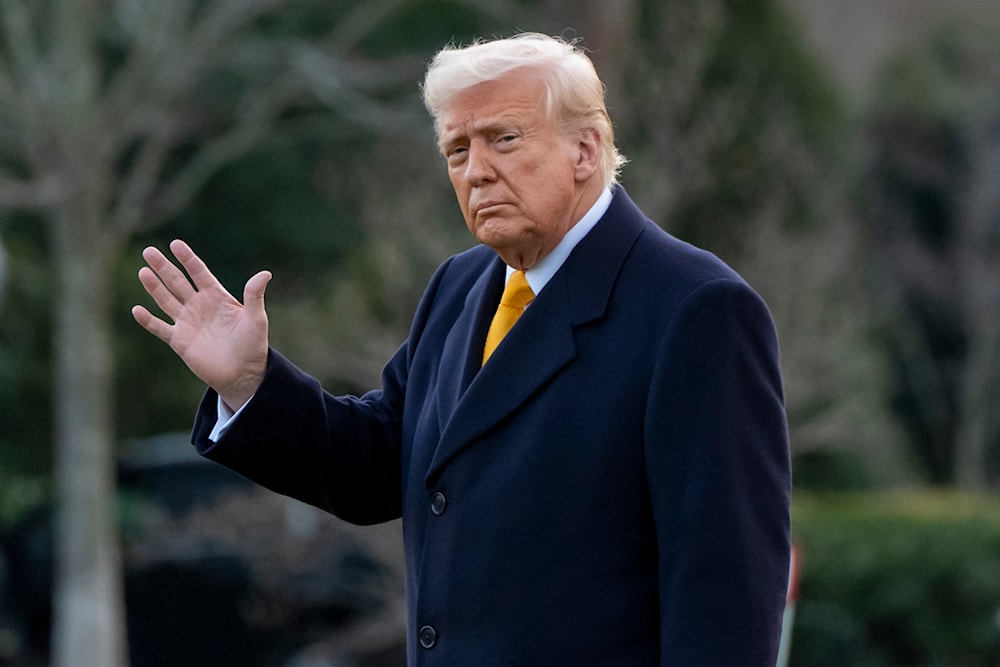Trump administration withdraws from COP28 loss and damage deal
Trump's withdrawal from the loss and damage fund echoes his denial of climate change, amid his campaign to reduce government spending in a bid to improve the US economy.
-

President Donald Trump waves before departing on Marine One from the South Lawn of the White House, Washington DC, Friday, March 7, 2025. (AP)
The Trump administration has withdrawn from the global agreement that requires developed nations, which are the most responsible for the climate crisis, to compensate developing countries for damages caused by global warming.
“On behalf of the United States Department of the Treasury, I write to inform you that the United States is withdrawing from the board for the fund for responding to loss and damage, effective immediately,” deputy director at the US Office of Climate and Environment Rebecca Lawlor said in a letter sent to the loss and damage fund on Friday.
The loss and damage fund, agreed upon at the COP28 UN climate summit in late 2023, was a major victory for developing nations that have long pushed for support as they suffer the worst impacts of the climate crisis despite minimal contributions to global emissions.
The US has a track record of delaying payments to the fund and has pledged only 17.5 million dollars to it, while major countries like France, Germany, and Italy pledged around 100 million dollars.
Trump cracks down on US climate efforts
Since taking office on January 20, US President Donald Trump has targeted climate agencies and agreements, dismissing climate change as a "hoax" while repeatedly advocating for the expansion of fossil fuel use.
Trump signed an executive order on the night of his inauguration withdrawing from the World Health Organization and the Paris climate agreement, indicating his administration's opposition to global climate action efforts.
Trump's administration fired hundreds of employees at the National Oceanic and Atmospheric Administration (NOAA), which leads climate research under the Department of Commerce, on February 25.
Employees targeted by the layoffs, who were mostly probationary workers, received e-mails notifying them that their employment would be terminated by the end of the day in a staff reduction effort that affected 10% of the total NOAA workforce.
The US administration started removing any mention of the climate change crisis from federal government websites in February, including the Department of Defense's climate portal, as well as pages from the official White House and Department of Agriculture websites.
Before his inauguration, Trump nominated Chris Wight as his Secretary of Energy, claiming that Wight would "drive innovation, cut red tape, and usher in a new 'Golden Age of American Prosperity and Global Peace."
Wight is an outspoken skeptic of climate change: "There is no climate crisis, and we are not in the midst of an energy transition either," he asserted in a 2023 LinkedIn post, while dismissing "carbon pollution" as outrageous while claiming that all life forms require carbon dioxide.

 3 Min Read
3 Min Read








